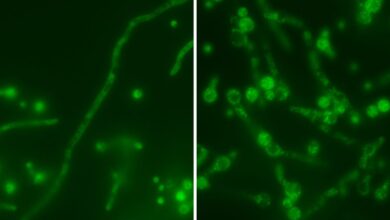Science history: A tragic gene therapy death that stalled the field for a decade — Sept. 17, 1999

Quick facts
Milestone: First reported death due to gene therapy
Date: Sept. 17, 1999
Where: University of Pennsylvania, in Philadelphia
Who: Jesse Gelsinger
Twenty-six years ago today, on Sept. 17, a teenager who had received an experimental gene therapy died. His death led to needed changes in the clinical trial process while also spurring skepticism that would ultimately stall the field of gene therapy for years.
About 90% of babies with the most severe form of OTC deficiency die. But Gelsinger — who had a milder, “late-onset” form of the disease — had reached adulthood by strictly adhering to a low-protein diet and a regimen of 50 pills a day, to help reduce the amount of ammonia in his blood and offset its effects. Although Gelsinger was small for his age and experienced a dangerous ammonia crisis when he stopped taking his pills, he was otherwise healthy.
Gelsinger wanted to help newborns with the disease, so he enrolled in a trial to test the safety of a gene therapy aimed at correcting the defective OTC gene. The treatment used a weakened form of an adenovirus, a type of cold virus, to deliver the corrected form of the OTC gene into Gelsinger’s cells.
Gelsinger flew to the University of Pennsylvania, where the trial was being run, and had the treatment infused into the artery feeding the liver on Sept. 13, 1999. He had flu-like symptoms that day, as was expected. But by the next day, he was jaundiced, he developed a severe inflammatory reaction and a blood clotting disorder, and his organs began to fail. He was taken off life support around 2:30 p.m. on Sept. 17. Investigations revealed that his death was caused by a severe immune reaction to the virus used to deliver the treatment.
A Food and Drug Administration (FDA) investigation found numerous problems with Gelsinger’s enrollment in the trial, according to The New York Times. First, his liver function was too poor and ammonia levels were too high when he started the trial. Second, the team did not disclose to patients that, prior to the trial, lab animals had died from higher doses of the therapy. Additionally, other human participants had experienced serious side effects. Meanwhile, Dr. James Wilson, the lead investigator, owned stock in Genovo, the company developing the therapy, and stood to gain millions if the therapy was successful.

“We don’t know what the impact of these deviations are,” Dr. Kathryn Zoon, then-director of the FDA’s Center for Biologics Evaluation and Research, said at the time, The New York Times reported. “But they’re important.”
Gelsinger’s father, Paul Gelsinger, launched a wrongful-death suit against parties involved in the trial; it was eventually settled for an undisclosed sum.
Gelsinger’s death led to several changes in how gene therapy clinical trials are run and to stronger informed-consent requirements. All of the gene therapy trials underway at the University of Pennsylvania were halted. The FDA also started requiring greater monitoring for gene therapy trials.
The death cast a pall over the field, and as public and private funding for the approach dried up, gene therapy stalled. Eventually, however, with progress in understanding the viral vectors used to deliver gene therapy, and later, with the advent of the cut-and-paste gene editing tool CRISPR, the field has rebounded.
Scientists have now used gene therapy to treat many rare genetic disorders, including severe combined immune deficiency and multiple forms of blindness. The first CRISPR-based gene therapy, which treats sickle cell anemia by disabling a specific gene, was approved in January 2024. And in 2025, scientists announced that they’d used a customized CRISPR treatment designed for his particular gene mutation to treat a baby with a rare and devastating genetic syndrome.
Right now, the number of approved gene therapy products is still small. Many of those approved therapies use cells that are edited in the lab and then returned to the body to fight or treat cancer, rather than changing the genes in the nucleus of a patient’s own cells.
But the field has come a long way since Gelsinger’s death, and in 2021, scientists used gene therapy to successfully treat OTC deficiency.
Source link




